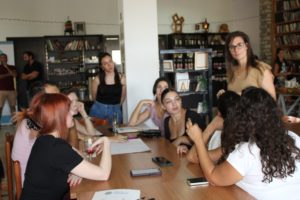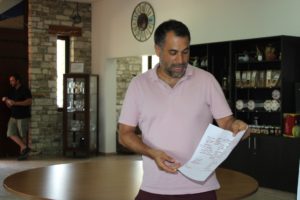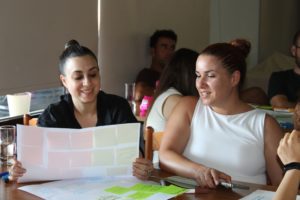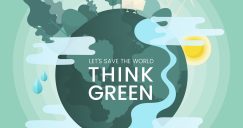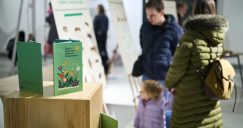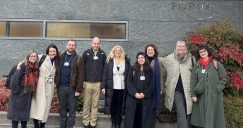A Brunch with Nature: Growing Green Futures in Kato Drys, Cyprus
What happens when sustainability, biodiversity, living systems and entrepreneurship meet over a table of local food?
The Brunch with Nature workshop, hosted at the Christoudia Winery in the scenic village of Kato Drys, gave us an answer: a lively day where learning and making come together, connecting people with soil, pollinators, and circular business ideas.
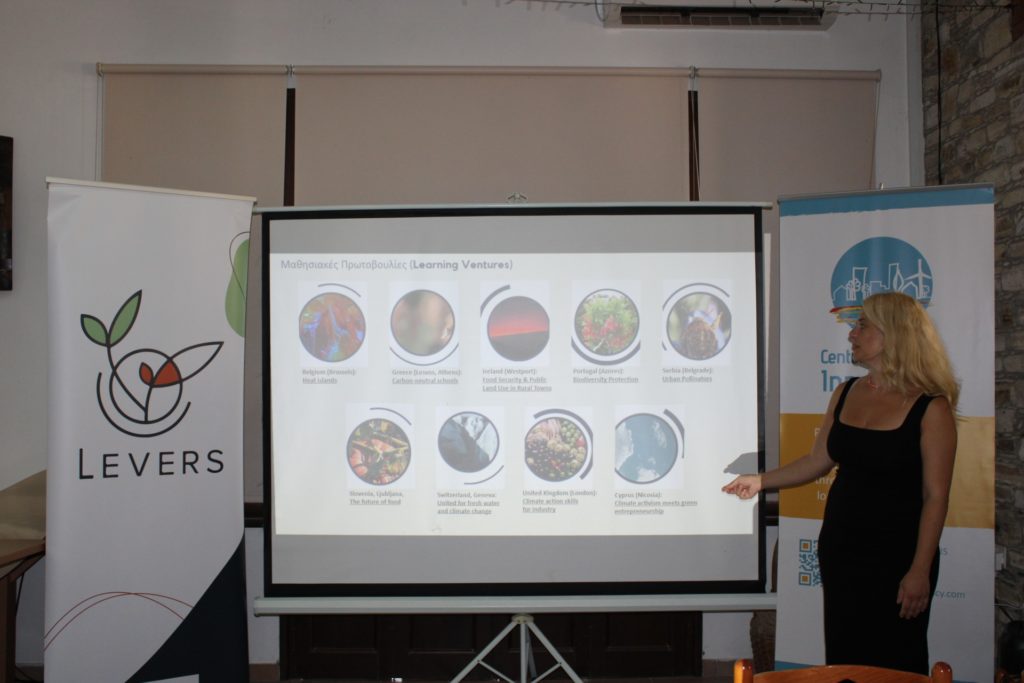
From Soil to Sustainability
“Healthy soils are the foundation of climate adaptation and resilient food systems.”
The day opened with a warm welcome and an introduction to the LEVERS initiative, before Nicolas Pattichis of Vavla’s Treasures took the floor.
His presentation on organic and regenerative agriculture walked participants through the importance of soil health and more specifically the use of organic matter, diversity of plants and insects, crop rotation, natural enemies and local varieties.Beyond theory, he showed what circular farming looks like in practice: from bio-certified olive oil and almonds to a preview of carob syrup making, where by-products are cycled back into the soil.
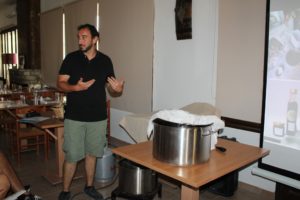
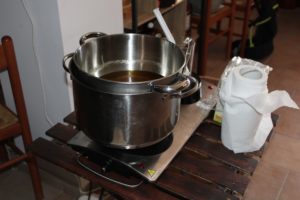 Healthy soils are the foundation of climate adaptation and resilient food systems.
Healthy soils are the foundation of climate adaptation and resilient food systems.
Bees, Pollinators, and Everyday Making
“Participants were positively shocked at how amazing bees are, how interesting and how important.”
Next came a shift from soil to pollinators. Georgia Shoshilou of Ecophysis led a session on bee biology and their critical role in ecosystems.
A short film and discussion unpacked everything from hive dynamics to the queen bee’s remarkable ability to store sperm in her spermatheca. Participants were positively shocked at how amazing bees are, how interesting and how important.
The excitement continued when participants were called to roll up their sleeves and make their own beeswax lotion and candle to take home.
We learned that the lotion created of beeswax and olive oil is hypoallergenic and good for the skin and that it can smell and act differently according to what you add in it: for example adding some cocoa butter would work well for face use while adding some lemon would smell good and be a natural insect repellent.
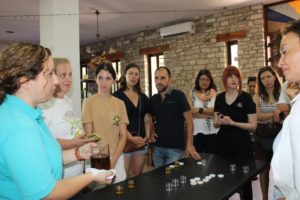
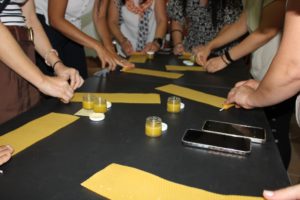
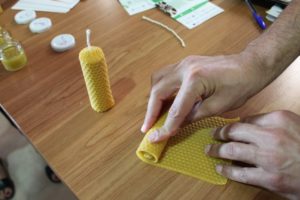
All the making sparked conversation about safe handling, natural materials, and the beauty of traditional know-how. By then, participants were ready to enjoy a delicious local brunch.
Green Entrepreneurship on the Table
“…climate justice isn’t only about protecting nature, but also about creating viable ventures that reduce waste, favour access over ownership, and strengthen community ties.”
After enjoying brunch with products from local producers and restoring their energy, attention turned to enterprise. Antonia Christou from the Cyprus University of Technology introduced the Business Model Canvas as a tool for green entrepreneurship.
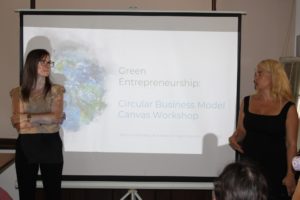
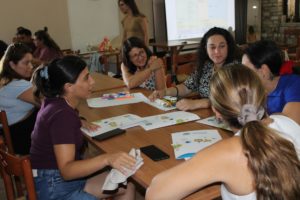
Working in teams, participants shaped small circular business ideas ranging from community tool libraries to low-waste services before pitching them to the whole group.
This hands-on approach showed that climate justice isn’t only about protecting nature, but also about creating viable ventures that reduce waste, favour access over ownership, and strengthen com munity ties.
Reflection and Takeaways
“More than just a workshop, it was a glimpse into how place-based practice can inspire sustainable futures across Cyprus and beyond.”
The workshop concluded with a reflective circle facilitated by Dr. Stella Karra from CSI Cyprus. Participants shared their Circular Business Model Canvases, offered peer feedback, and explored how the day’s insights could translate into real-world action.
Key takeaways included:
-
Hands-on knowledge of regenerative agriculture practices.
-
A renewed understanding of the vital role of bees in sustaining our food systems.
-
Confidence in applying the Circular Business Model Canvas to shape green and impactful ventures.
-
New connections with like-minded peers committed to co-creating climate solutions.

